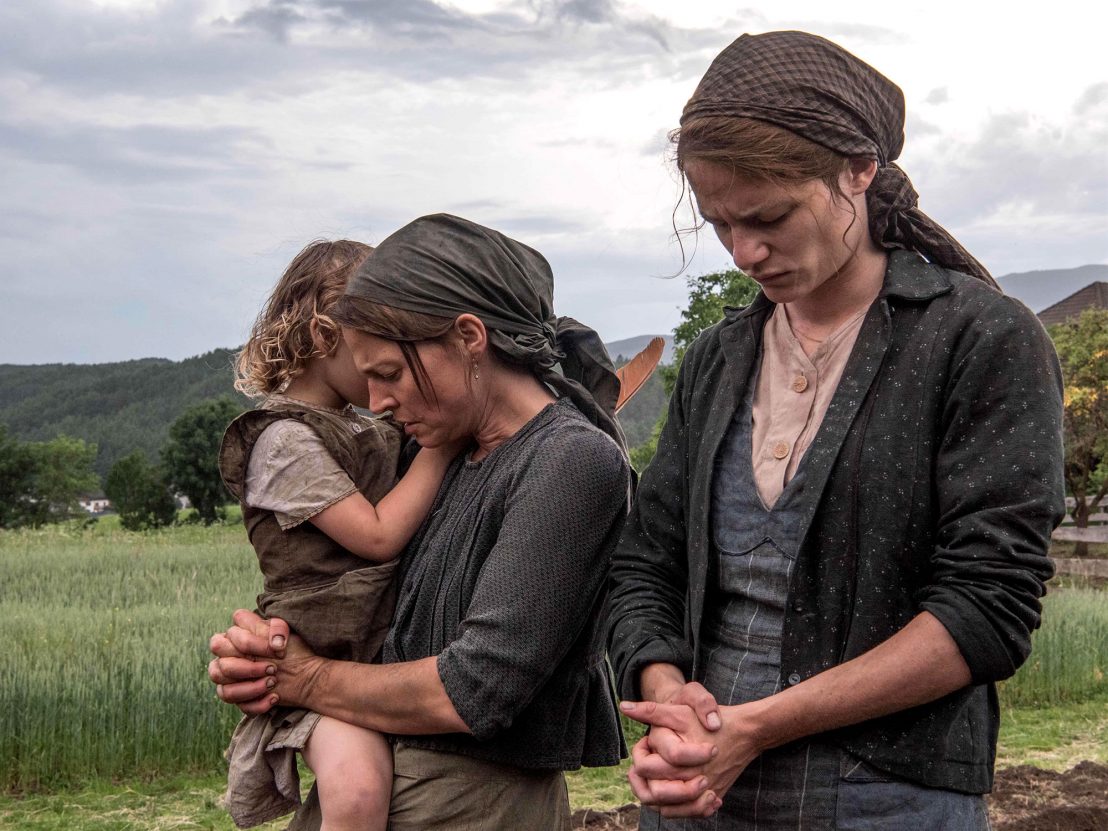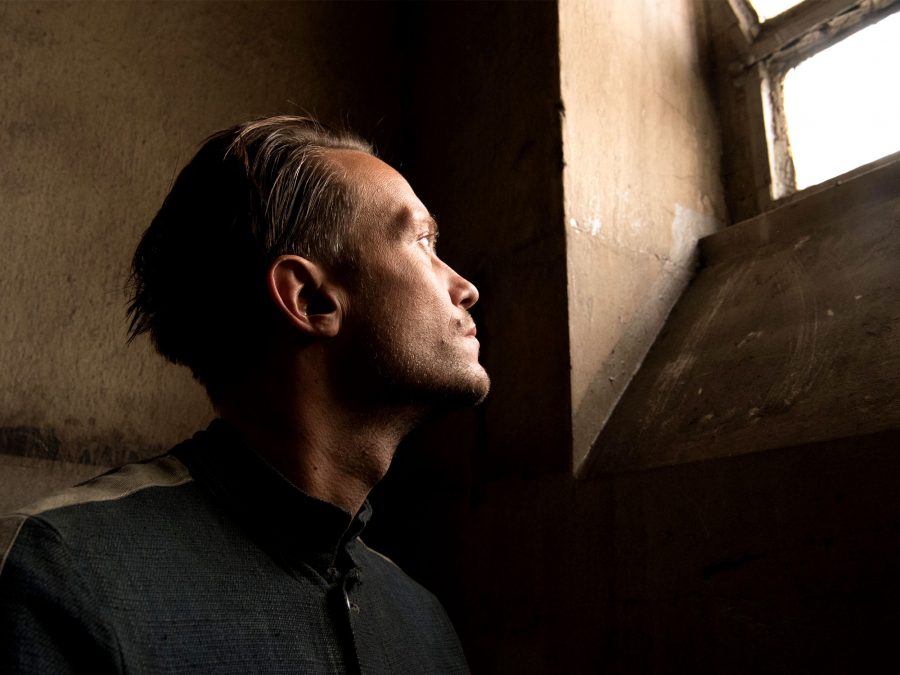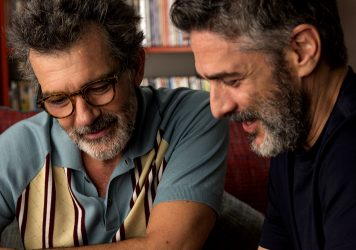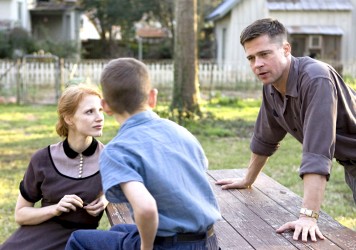
A conscientious objector finds salvation in Terrence Malick’s sublime World War Two-era romance.
Terrence Malick’s breathtaking new epic is bookended by a promise made by two lovers to one another, a tender call and response that seems to bridge an infinite distance and spans an endless length of time, reaching all the way to the heavens. In the first instance we hear a husband’s solemn vow – prayer-like in its hushed, assuring tone – that he and his wife will one day build a nest together, high up in the mountains.
As the voice softly falls away the frame narrows and we’re suddenly transported back to Nazi Germany circa the late 1930s. Boxy black-and-white archive footage shows Adolf Hitler parading before an adulting crowd – flags waving ecstatically, right arms extended in stiff salutation – before cutting to a still more sobering clip from Leni Riefenstahl’s infamous film of the Nuremberg Rally, The Triumph of the Will.
A few hundred miles away, farmers Franz (August Diehl) and Fani Jägerstätter (Valerie Pachner), are raising their three young girls in St Radegund, a small village set in the idyllic foothills of the Austrian Alps. In flashback we see the moment when the couple’s eyes first met, Malick spending time savouring the sweet spring of their romance before jumping ahead to the point at which their world is shattered by the news that war has broken out across Europe.
Conflict invariably results in families being broken up and whole communities being destroyed, and this is accelerated in Franz and Fani’s case by his refusal to fight for the Nazis (Austrian men of a certain age were automatically conscripted during World War Two). Fuelled by propaganda, peer pressure and fear, the other residents quickly turn on them, prompting Franz to agree to partake in basic training. But he knows he can’t go any further after this, that what he is being coerced into is wrong despite his neighbours and the church trying to convince him otherwise.
Several years go by. By now Franz has joined other conscientious objectors in a military prison in Berlin. Back home, Fani continues to work the land and look after the kids, who are growing up fast. As more and more time passes – the changing seasons captured in crisp widescreen by cinematographer Jörg Widmer – their faith is tested and eventually their hope begins to fade. But the light never goes out.
Indeed, even in the film’s darkest moments, Malick ensures that light floods every frame: it pours in through the stone-brick doorways of Frantz and Fani’s farmhouse; the stained glass windows of the church where she goes to seek counsel; and the skylight of the cellblock where he dreams of the day they will meet again.

What a wonderfully poetic way of illustrating the eternal bond between two people. Of course, there is plenty of elegant prose to reinforce this feeling too. In voiceover we hear extracts from some of the letters the real-life Franz and Fani wrote to each other during this terrible period of forced separation. It’s heartbreaking but, complemented by James Newton Howard’s lush orchestral score, profoundly moving in a way that only Malick films seem capable of. Per the title – lifted from the closing passage of George Eliot’s ‘Middlemarch’ – their correspondence is a beautiful reminder of the importance of staying true to one’s principles.
Returning to Hitler, it’s curious that the second time he appears in A Hidden Life it’s in a more informal setting; relaxed and smiling at his Eagle’s Nest retreat, high up in the mountains. What exactly are we supposed to infer from this? Well, there’s a line of dialogue towards the end the film which I think may contain the answer.
Having been sentenced to death for failing to pledge allegiance to the Führer, Franz is told by his priest that God does not judge a man by what he says but what is in his heart. Hitler believed that the atrocities committed by the Nazis were justified because he was being guided by a higher power. But while he may have claimed to love another human being and evidently enjoyed his downtime, his heart was irrefutably filled with hate.
Malick’s message is clear: vanquishing evil requires individuals to take a stand, to recognise what is right and what is wrong. So beware of false prophets; never stop holding on to love and hope; above all, don’t let hate in. For Franz and Fani, the path to salvation begins and ends in Radegund, high up in the mountains. Given the uncertain, deeply polarised times we live in, what could be a more beautiful and poignant sentiment than that.
Published 19 May 2019

Pedro Almodóvar bares all in this affecting portrait of a filmmaker reconciling his past triumphs and tragedies.

A glorious ode to the improbability of existence which asks us to cherish the simple processes of living and loving.

A new species of plant poses a threat to humanity in Jessica Hausner’s quietly chilling sci-fi.